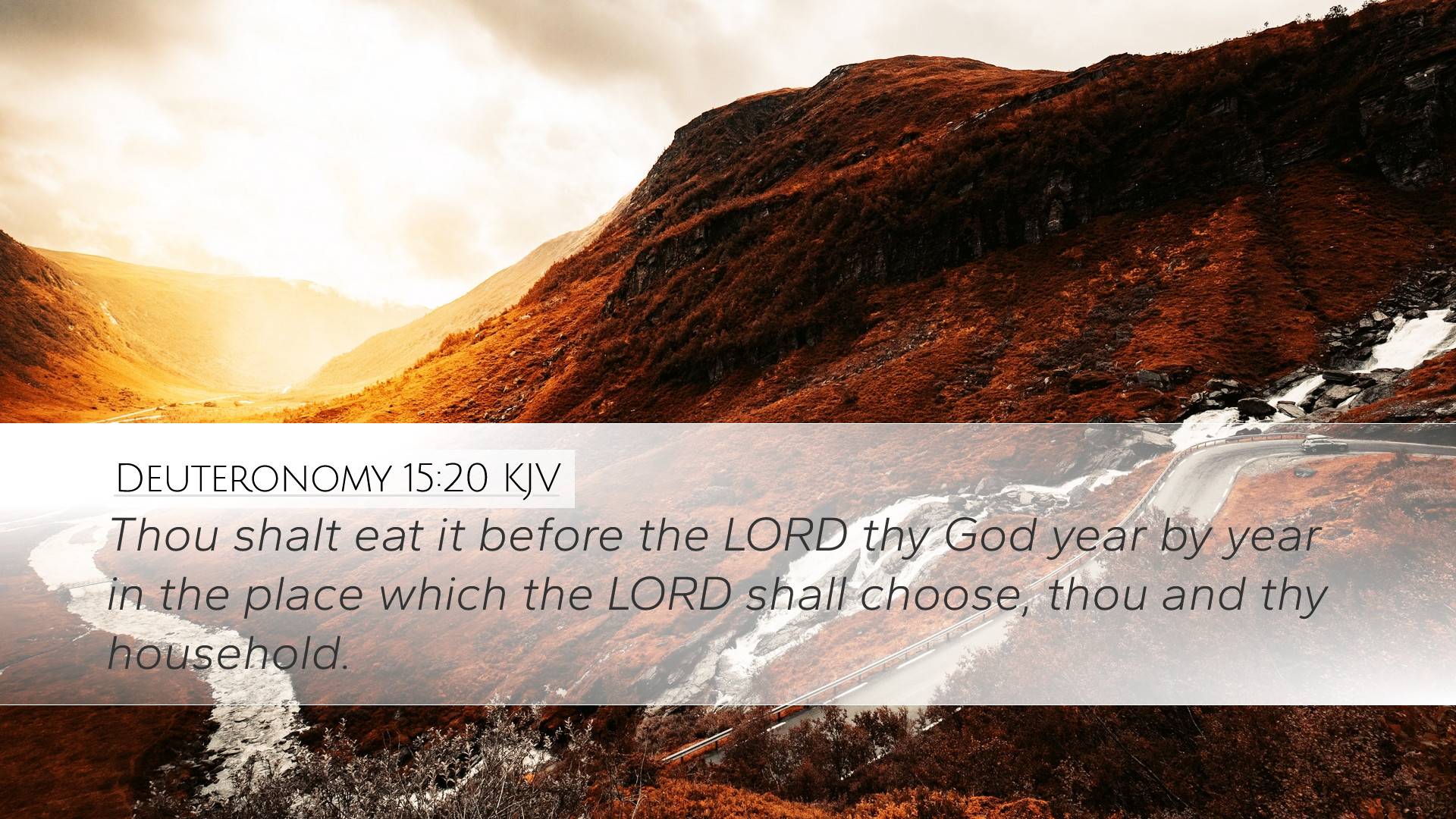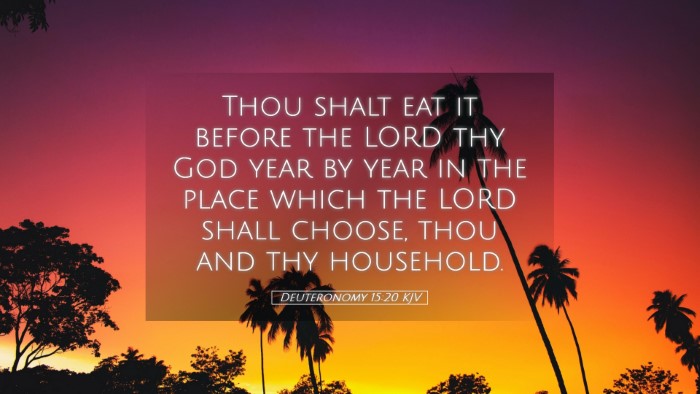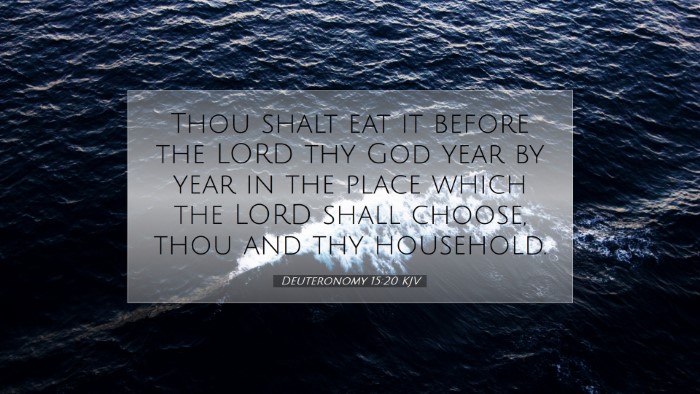Commentary on Deuteronomy 15:20
Verse Reference: Deuteronomy 15:20 - "And thou shalt eat it before the Lord thy God year by year in the place which the Lord shall choose, thou and thy household."
Introduction
The context of Deuteronomy 15:20 is situated within a broader discourse on the distribution of wealth and responsibilities among the people of Israel. This verse emphasizes obedience to the commandments and the communal aspect of worship and celebration in the presence of God.
Historical and Cultural Context
The Israelites were instructed to remember their history of bondage in Egypt while establishing their national identity as freed people under God's law. In this context, managing resources and the obligation to care for those in need were paramount. Deuteronomy 15 introduces regulations regarding the year of release and the care of the poor, which sets the stage for the provisions mentioned in verse 20.
Insights from Commentators
-
Matthew Henry:
Henry highlights the importance of communal feasting as an act of worship. The directive to eat before the Lord signifies a joyful and solemn occasion that brings together families and the community to express gratitude for God’s provisions. It serves as a reminder of God’s generosity and favor toward His people.
-
Albert Barnes:
Barnes elaborates on the phrase "year by year," pointing out that this periodic act of remembrance acknowledges God's faithfulness throughout each year. He argues that such a gathering is intended not just for physical sustenance but as a means of spiritual rejuvenation, reinforcing the relationship between God and His people.
-
Adam Clarke:
Clarke provides a practical interpretation of this verse in terms of the location "in the place which the Lord shall choose." This underscores the importance of designated places of worship, which reflect the need for centralization in Israel's religious practices, ensuring that worship is conducted rightly and reverently.
Theological Implications
Deuteronomy 15:20 encompasses significant theological themes, such as remembrance, community, and divine provision. The act of feasting in the presence of God reflects a paradigm where worship is intertwined with social justice and gratitude.
Remembrance
The repeated call to remember God's provision serves as a spiritual anchor for the Israelites, ensuring they do not forget their dependence on Him, especially as they prosper in the Promised Land. This notion reverberates through biblical history and is echoed in the New Testament as well.
Community and Inclusion
Inclusion of the household in this act of worship indicates that faith is to be lived out in communal contexts. Families are encouraged to come together to celebrate and acknowledge God's blessings, thus fostering unity and shared faith in God's goodness.
Divine Provision
The command reflects God's desire for His people to recognize His gifts. Eating in God’s presence becomes a means to appreciate the blessings bestowed upon them, nurturing a spirit of thankfulness and reinforcing their identity as God’s chosen people.
Practical Applications
For pastors and leaders, Deuteronomy 15:20 serves as a call to foster an environment within the church that emphasizes communal gratitude and worship. Here are some practical applications:
- Community Feasts: Encouraging regular communal meals that remind congregants of God's provision can play a vital role in fostering community spirit and gratitude.
- Teaching Remembrance: Pastors can lead congregations in worship that emphasizes remembering God's past blessings to encourage faith in His future provision.
- Inclusion in Worship: Actively involving families and households in the liturgical practices stresses the importance of passing on faith within families.
Conclusion
Deuteronomy 15:20 encapsulates vital lessons about worship, community, and remembrance. By integrating the insights from historical, cultural, and theological perspectives, this verse becomes a powerful reminder for modern readers about living in gratitude and communal faithfulness.


